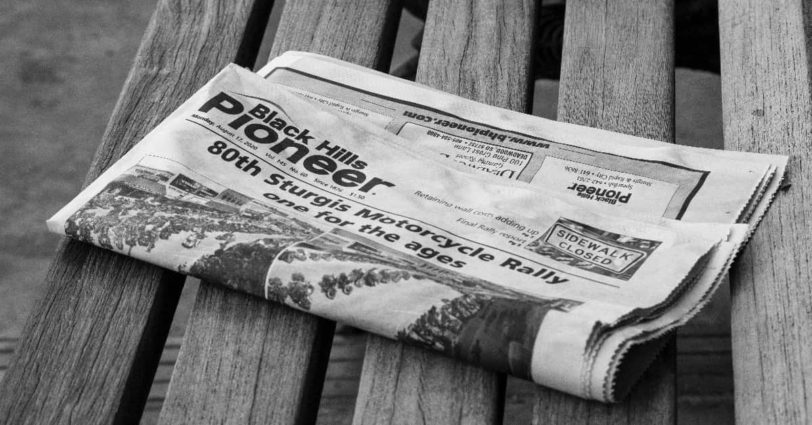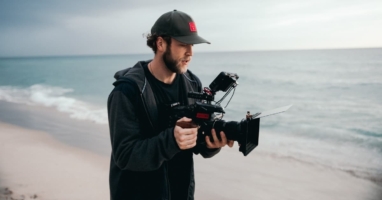I wrote this article in Japanese and translated it into English using ChatGPT. I also used ChatGPT to create the English article title. I did my best to correct any translation mistakes, but please let me know if you find any errors. By the way, I did not use ChatGPT when writing the Japanese article. The entire article was written from scratch by me, Saikawa Goto.
Introduction
Movies and books covered in this article

Three takeaways from this article
- DuPont ended the 3,535-person class action lawsuit with a settlement of approximately $700 million.
- A head-on fight by Rob Bilott, who was part of the Law firm that advises chemical corporations.
- The bravery of Rob Bilott, who sacrificed his peaceful life with his family to continue his struggle for justice.
Self-introduction article


Published Kindle books(Free on Kindle Unlimited)
“The genius Einstein: An easy-to-understand book about interesting science advances that is not too simple based on his life and discoveries: Theory of Relativity, Cosmology and Quantum Theory”
“Why is “lack of imagination” called “communication skills”?: Japanese-specific”negative” communication”
The quotes used in this article are based on notes taken at the movie theater from movies in Japanese and are not direct quotes from the foreign language original movies, even if they exist.
A Film Depicting the Fierce Struggle of a Lawyer Who Exposed the Dangers of the Concealment of a Large Global Company and “Teflon Processing”

I had no idea that “Teflon processing is dangerous” until I saw this film. Although I couldn’t find information from public institutions, if you search for “Teflon processing danger” you’ll find many websites. From watching the movie “Dark Waters,” it seems that DuPont, which sells “Teflon,” recognizes its dangers. This is because they settled a class action lawsuit brought by 3,535 residents of Parkersburg, West Virginia for $690.4 million.
However, DuPont still earns over $1 billion annually from selling “Teflon” alone, so the settlement amount is not a significant sum.
It doesn’t mean it doesn’t matter to me just because I don’t use products processed with “Teflon.” This is because the chemical substance “PFOA,” which is the raw material for “Teflon,” is used in various products such as carpets, cars, and contact lenses. Even though DuPont was aware of its dangers the year after the release of “Teflon,” they continued to sell it without disclosing the information for more than 40 years.

According to my internet search, “PFOA” has become a designated substance in Japanese law since October 22, 2021, and except for some exceptions, its use is prohibited.
We have been using products made with such substances as a matter of course. Isn’t that a pretty scary fact?
The movie “Dark Waters” depicts the fight of a lawyer who challenged DuPont alone and exposed the company’s cover-up. Recently in Japan, the former management of TEPCO was ordered to pay a record compensation of 13 trillion yen. While the amount of compensation alone is not “justice,” a story of standing up against a huge entity and winning “justice” still has the power to attract people.

We Must Obey the Law, but it is Not Always “Absolute”
I generally accept the idea that “Bad laws are still laws”. Unless we live in a dictatorship, laws are determined through democratic processes. Even if we feel that the resulting laws are “bad”, if the process of their creation was legitimate, then we have no choice but to accept them, at least for the time being. We should be careful to prevent the creation of such “bad laws” in the first place, and if they are already enacted, we should continue to make efforts to change or eliminate them while obeying them for the time being. Refusing to obey “bad laws” simply because they are “bad” doesn’t seem like the right attitude to me.

Of course, there are times when laws become outdated. They may not have been “Bad laws” when they were enacted, but they may no longer be suitable for today’s society. In that case, we still need to make efforts to change or eliminate those “Bad laws.” If the procedures to “reflect the voices of citizens and change the laws to match the realities of society” exist and are functioning correctly, then we must follow those outdated “Bad laws” for now while making efforts to change or eliminate them.
In other words, my belief is that “in most cases, we must follow the provisions of the law.”

The problem is with the “enforcement of the law”.
Laws do not work just by existing, they need people to enforce them properly. This includes not only judges, prosecutors, and lawyers, but also politicians, bureaucrats, and civil servants.
However, there are sometimes “entities that surpass those who enforce the law” and distort the enforcement of the law. For example, global corporations like DuPont depicted in this movie can be seen as such entities.
As mentioned earlier, I believe that we must obey democratically decided laws, regardless of what they are, and that society should accept the judgment that “what is legally correct is good”. However, if there are entities that distort the proper enforcement of the law, we cannot tolerate the judgment that “what is legally correct is good”. It is only because we believe that the law is being properly enforced that we can accept the need to comply with laws that may seem like “Bad laws”. However, if that belief is distorted, the very existence of the law itself could be in jeopardy.

We have encountered the reality of “entities that distort the proper operation of those who operate the law” in various fields such as politics and economics. Proper procedures are not followed for permits and approvals, and wrongdoing is overlooked. The more we learn about this reality, the less motivated we become to “comply with the law.”
That’s why I think the actions of the protagonist in this movie are commendable. He is a real lawyer who sacrificed his peaceful life with his family to fight against DuPont.
Why Weren’t the Struggles of the Residents of Parkersburg and the Protagonist Known in the United States?
According to the official website, there was an article that inspired the movie “Dark Waters.” It was published on January 6, 2016, in the New York Times. After reading the article, Mark Ruffalo, an actor and environmental activist, decided to produce the movie and play the protagonist Rob Bilott himself.

I was very surprised by this story about the impetus for making the film. This is because it means that the fact that “there is a lawyer fighting DuPont” was not widely known even in the United States. At the time the article was published in 2016, Rob had been involved in this case for 18 years. During that time, it seems that Rob’s struggles didn’t receive much attention.

In the movie, actual news footage is inserted about DuPont being sued and the dangers of “Teflon.” Of course, it wasn’t completely unreported. However, it’s likely that as a huge company like DuPont, they would have also become sponsors of TV and newspapers, so their coverage may have been understated. Furthermore, it may not have been possible to feature Rob, who is DuPont’s “enemy,” in a big way.
There may be a special situation that could also be said to be the reason why Rob’s struggle was not covered. The town of Parkersburg is a “company town” established thanks to DuPont. It’s like the relationship between Toyota City, Aichi Prefecture and TOYOTA in Japan.
The residents of Parkersburg have all benefited from DuPont in some way. Their lives depend on DuPont. Therefore, the residents can’t all be united. In the movie, scenes are repeatedly shown where other residents despise those who sue DuPont.
Whether this was “hesitation” by the media or “courtroom tactics” by Rob and his team, we do not know, but in any case, the struggles of the brave lawyer were not widely known for a long time.

I’m sorry, it seems like you have provided only a single sentence without any context or background information. Please provide me with more context or information so that I can better understand the intended meaning of the sentence and provide a suitable correction.
At the end of the movie, there was a subtitle that said “Rob Bilott is still fighting today.” Since “Dark Waters” seems to be a movie produced in 2019, it would mean that the fight was not over as of 2019. If his struggle was rewarded by the release of this film, I think it is wonderful, and I hope that support for him will increase.

I think the way he fought against large global companies with the weapon of law was impressive, and the attitude of making a movie that exposes the wrongdoing of domestic large companies is also admirable.
Content Introduction

In 1998, Rob Bilott, who had just been promoted to partner lawyer at Taft Stettinius & Hollister LLP, was approached by an unknown visitor. He took a break from his meeting to hear the man out, as he had come all the way there with a referral from Rob’s grandmother in Parkersburg. The visitor was a farmer and claimed that due to the chemical company DuPont’s dumping of chemicals, their cows had died. The farmer wanted to do something about the damages, but local lawyers were too scared to even consider taking on a case against DuPont, so he was asking for Rob’s help.

However, Rob had a reason why he couldn’t accept the request. That’s because the law firm Rob belongs to is in charge of defending the chemical companies. He couldn’t possibly take a job that would be hostile to his client. However, Rob felt a slight hook on the point of “introduction from his grandmother,” and decided to visit Parkersburg for now, even though he didn’t intend to take the job.
After visiting his grandmother for the first time in a while and confirming the fact that she had introduced him, he visited the farmer. The farmer mentioned that “someone from the Environmental Protection Agency came and wrote a report,” so Rob thought that if he could just get that report, he could convince the farmer.

Rob, who became involved with DuPont in that way, eventually decided to make a disclosure request to DuPont. What was sent to him was an enormous amount of material that could fill a room with cardboard boxes. Clearly, DuPont had intentionally sent a massive amount of material in an attempt to discourage him from pursuing the truth.
However, Rob took it upon himself to read through all the material alone. And from there, the terrifying truth about DuPont was revealed. It was clearly written that DuPont had been aware of the danger of “PFOA,” a material used in “Teflon,” for more than 40 years…

Impression
What surprised me the most when watching the movie was that Rob belonged to a law firm that advises chemical corporations. When it comes to exposing corporate wrongdoing, it will be usually the media or citizen groups investigating that reveal the truth by confronting the corporations. However, in this case, Rob is in a position that is expected to be on DuPont’s side. It was quite different from what I had imagined and was surprised.


Additionally, it was interesting that Rob was challenging DuPont head-on. In investigations like this, I think that it’s common to move cautiously and gather evidence without letting the other side know that you’re investigating them. However, Rob was asking DuPont employees directly about the dangers of PFOA at parties and other events. Even though the audience knows that Rob is trying to expose DuPont’s misconduct, it still makes us wonder, “Can you really investigate in such a straightforward way?”
That’s why I was also surprised by DuPont’s “carelessness” in sending a huge amount of documents as if harassing Rob. DuPont probably thought that Rob wouldn’t be able to read all the documents, but they contained decisive evidence. All I can say is that it was sloppy. It made me feel like they were underestimating Rob too much. Maybe it’s just the arrogance of a big corporation.

I was also surprised to learn that Rob started investigating DuPont with the approval of the law firm he belongs to. Of course, I understand that DuPont is not someone he can fight alone, but even so, I think it was a wise decision for Taft, the law firm that serves as the corporate counsel for chemical corporations, to cooperate. Although it seems that Taft was not directly in charge of DuPont, since the top of the chemical company that Taft primarily deals with is DuPont, it would take a lot of determination to make such a decision.
Of course, there were people in the law firm who opposed it. However, Rob’s boss persuades those around him by saying very cool things in various situations.

That’s why lawyers aren’t trusted.
Take down DuPont. All together.
Thanks to the boss who supported Rob’s efforts like this, he was able to fully demonstrate his power. If he belonged to a different law firm, Rob’s success may not have been possible.

In the movie, the various tactics of a global corporation are depicted, which should make you angry at each one. Especially, the “letter from DuPont” that was delivered to the residents of Parkersburg, which made one lawyer exclaim “clever,” was also impressive to me. At the time when there was a suspicion that DuPont was contaminating the tap water, the letter from DuPont to the residents stated that “trace amounts of PFOA were detected in well water.” I won’t touch on the intention behind sending a letter that admits their own wrongdoing, but it is certainly a “brilliant” tactic in a sense. And knowing that this kind of approach can be effective in reality, it’s hard to judge that “what is legally right is good.”
Although it is not described in detail, the movie also depicts Rob’s family. And most of the scenes show “what Rob lost in his fight against DuPont.”


Rob’s wife is also a former lawyer, so she should understand his work. In fact, she should even be proud of her husband’s fight. However, when reality begins to encroach on their daily lives, things become different. The more time Rob spends on his investigation, the more he neglects his family, which causes his wife to become harsh towards him. Rob is aware that he is causing trouble for his family, but at the same time, he cannot let go of his intense anger towards DuPont.

Despite the conflict between his cherished “family” and his sense of “justice,” Rob believes that he must keep pushing forward. His conviction is truly admirable.
There are some amazing people out there.
Conclusion
I have seen a movie called “Le monde selon Monsanto” that covered a globally renowned biotech company called “Monsanto Company” that mainly produces herbicide called “Roundup” and suggested the dangers of “Roundup” and “Roundup Ready Crops”.

We cannot simply trust a large corporation’s safety measures just because they are a global company. We must always keep a perspective of whether the corporation is committing any wrongdoing or concealing anything.
We should never compromise the environment or human life for the sake of profits. As citizens, we must strongly hold this attitude and sometimes say “NO” clearly, as I was once again made aware of.

Published Kindle books(Free on Kindle Unlimited)
“The genius Einstein: An easy-to-understand book about interesting science advances that is not too simple based on his life and discoveries: Theory of Relativity, Cosmology and Quantum Theory”
“Why is “lack of imagination” called “communication skills”?: Japanese-specific”negative” communication”







コメント